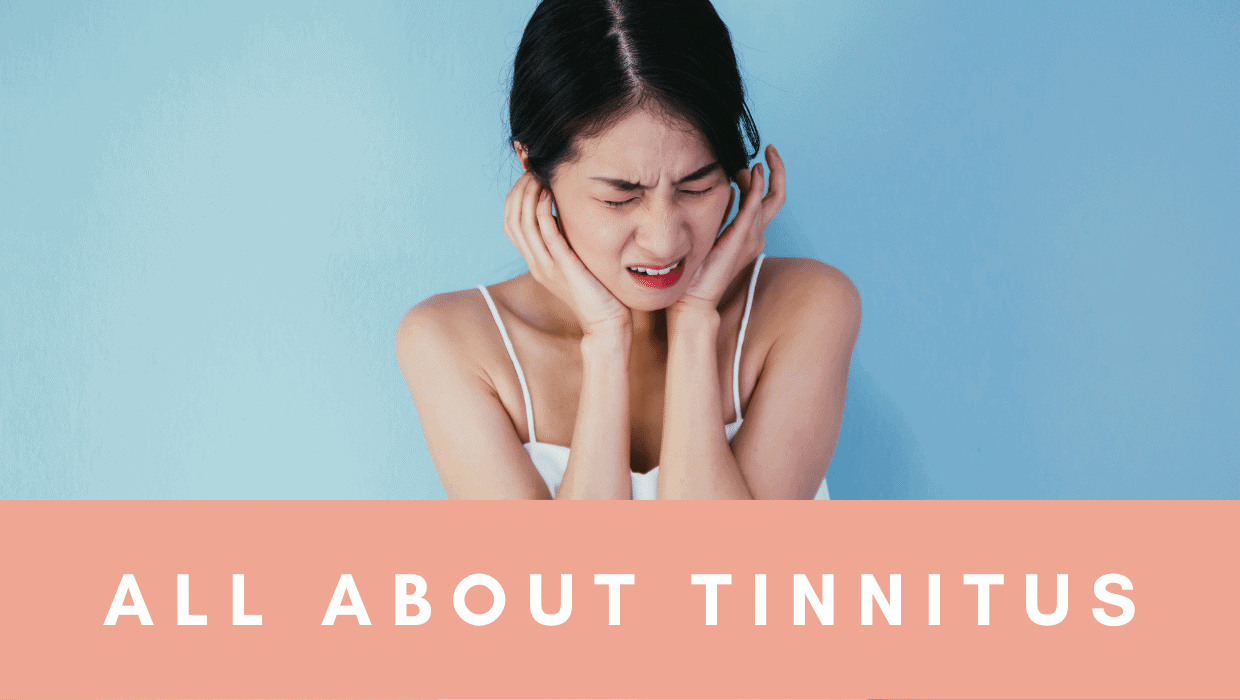If you experience tinnitus (pronounced ti·nuh·tuhs) you probably already know it. Tinnitus is the perception of ringing or buzzing in one or both of the ears. For some, tinnitus is a slight annoyance to their day. For others, it can be extremely stressful and intrusive, interfering with one’s ability to sleep, concentrate, or complete activities of daily living. If you are experiencing the latter, we strongly recommend you seek an audiological evaluation at our clinic.
If you stumbled upon this article, chances are that either you or someone you love is experiencing tinnitus. But what actually is this obnoxious noise you hear in your head?
How tinnitus presents
Tinnitus is very common, affecting about 15% of the US general population. While common amongst many, tinnitus presents itself very differently for each individual. It can affect one or both ears, can be continuous, or only occasional in nature. The way tinnitus sounds also varies from person to person. Some people report hearing ringing, buzzing, clicking, whooshing, or roaring sounds. The volume can be extremely loud and incredibly difficult to ignore, or it could be very faint and hardly noticeable.
For most people, tinnitus seems to be at its worst when trying to fall asleep at night or attempting to complete a task that requires concentration in a quiet environment.
What causes tinnitus?
Tinnitus is still quite a mystery to the medical and scientific communities. Researchers are not fully certain of what exactly causes tinnitus. What is certain is that tinnitus in and of itself is not actually a condition. Instead, the ringing you hear in your ears is actually a symptom of another underlying condition.
The most commonly known cause of tinnitus is damage to the delicate hair cells in our inner ears that are responsible for transmitting sound waves into electric signals to be sent to our brains for processing as sounds we understand. Damage to these cells can cause misfires, thus potentially causing us to “hear” the phantom noises called tinnitus. Damage to these delicate hair cells (either through aging or excess exposure to noise) is also one of the most common causes of hearing loss. It may be because of this connection that about 90% of people who experience tinnitus also have at least some degree of hearing loss.
Other, less common causes of tinnitus are ear wax buildup, injury to the inner ear, diseases such as Meniere’s Disease, TMJ, or certain medications that are known to have ototoxic qualities.
Types of tinnitus
There are two different types of tinnitus; subjective and objective. Subjective tinnitus is by far the most common, accounting for about 99% of tinnitus cases.
Subjective tinnitus is the perception of sound in the absence of an acoustic stimulus and is heard only by the person experiencing it. Loud noise exposure, aging, and some prescription medications are the most common causes of subjective tinnitus.
Objective tinnitus is uncommon and results from noise generated by structures near the ear. Sometimes the tinnitus is loud enough to be heard by the examiner. Objective tinnitus can occur because of a middle ear bone condition, middle ear muscle contractions, or blood vessel issues.
Tinnitus treatments & ringing in ears treatment
Unfortunately, there is not actually a cure for tinnitus. Instead, there are multiple treatment options that can be tried to help lessen the severity of tinnitus symptoms and how they affect your life and sleep.
Hearing aids with tinnitus treatment – Because many people with hearing loss also experience tinnitus, many hearing aid manufacturers have actually built-in tinnitus treatments to their hearing aids. If you experience tinnitus, it might be worth looking into hearing aids that come equipped with tinnitus sound therapies.
White noise – White noise can be used to block out some of your annoying tinnitus symptoms, especially when trying to fall asleep. You can use a white noise machine, YouTube videos, or dedicated sound therapy apps on your cell phone to help drown out your tinnitus. Some people find relief with the white noise, while others prefer pink noise, music, or even specifically created tinnitus masking sound therapies (all of which can be found free on YouTube or as an app on your phone!) Our audiologists have a list that can be helpful when searching for what is right for you.
Tinnitus retraining – Tinnitus retraining typically includes elements of talk therapy with a wearable device that delivers personalized tonal music to help mask the tinnitus sounds over time. These two types of therapies can work together to help you learn to focus less on your tinnitus, thus helping to alleviate some of the stress associated with tinnitus and help it to have a less negative impact on your overall quality of life.
The Hearing Health Center of Houston
If you’ve been struggling with the frustrating experience of tinnitus, contact us today! Our doctors of audiology will provide a consultation and offer ringing in ears treatment options that can help alleviate your tinnitus.


